Research Note: IBM to Acquire Confluent for Real-Time Event Streaming

IBM has entered a definitive agreement to acquire Confluent for $11 billion in cash ($31 per share), adding enterprise-grade Apache Kafka streaming infrastructure to its hybrid cloud and AI portfolio. Confluent brings 6,500 enterprise customers, proven streaming architecture handling real-time data flows across hybrid environments, and capabilities specifically relevant to emerging agentic AI requirements. The […]
Research Report: Beyond Legacy Virtualization: Wind River’s Modern Alternative for Enterprise Infrastructure
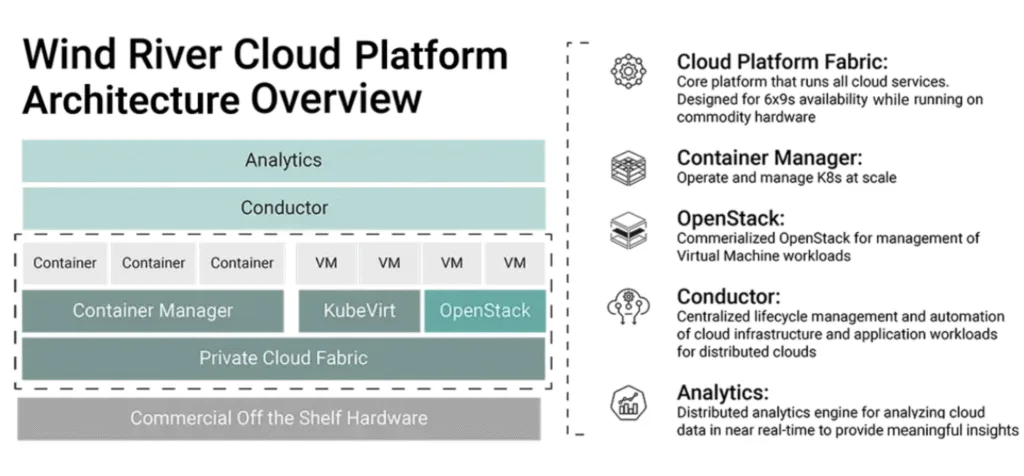
Wind River Cloud Platform emerges as a compelling enterprise-grade alternative that addresses both immediate VMware challenges and long-term infrastructure modernization needs. Built on proven open-source technologies including StarlingX, Kubernetes, and OpenStack, the platform delivers unified management of both virtual machines and containers under a single, highly automated infrastructure solution.
Research Note: Red Hat AI 3.0
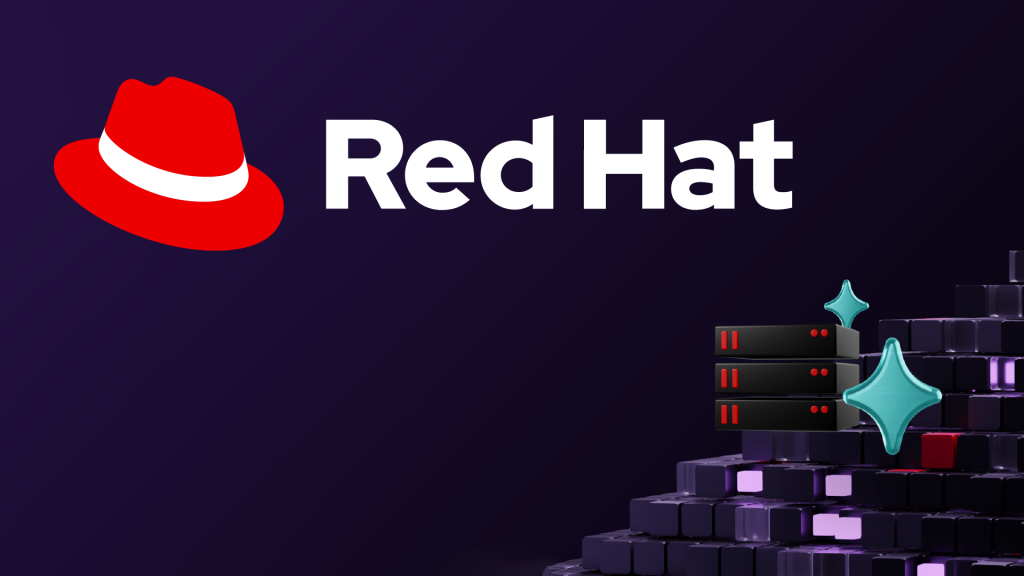
Red Hat released version 3.0 of its AI platform, introducing production-ready features for distributed inference, expanded hardware support, and foundational components for agentic AI systems.
Key additions include the generally available llm-d project for Kubernetes-native distributed inference, support for IBM Spyre accelerators alongside existing NVIDIA and AMD GPU options, and developer preview features for Llama Stack and MCP integration.
Research Note: Dell’s New Automation Platform
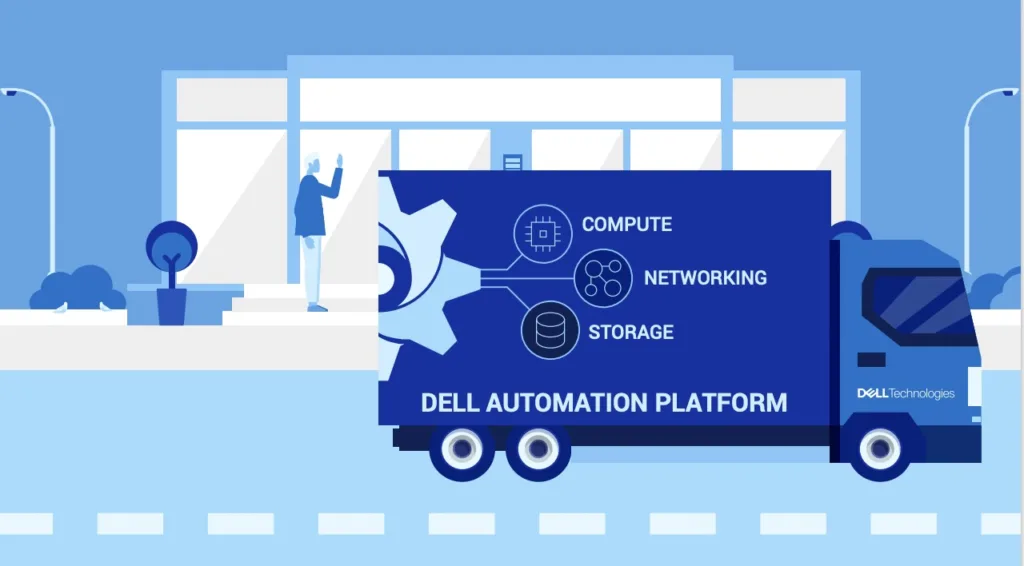
First teased at Dell Technologies World earlier this year, the company has launched its Dell Automation Platform. The new centralized software orchestration solution consolidates management of AI, private cloud, and edge computing environments.
Research Note: AGNTCY Moves to Linux Foundation
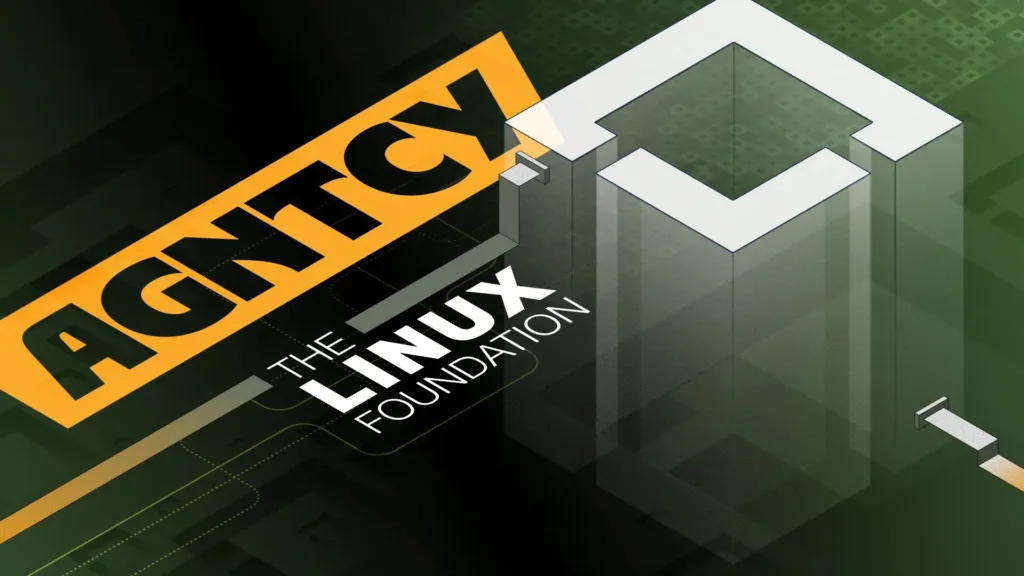
AGNTCY delivers foundational infrastructure for the “Internet of Agents”, enabling AI agents from different frameworks, vendors, and deployment environments to discover each other, establish identity, communicate securely, and share runtime observability data.
Research Note: Red Hat OpenShift on Dell AI Factory with NVIDIA
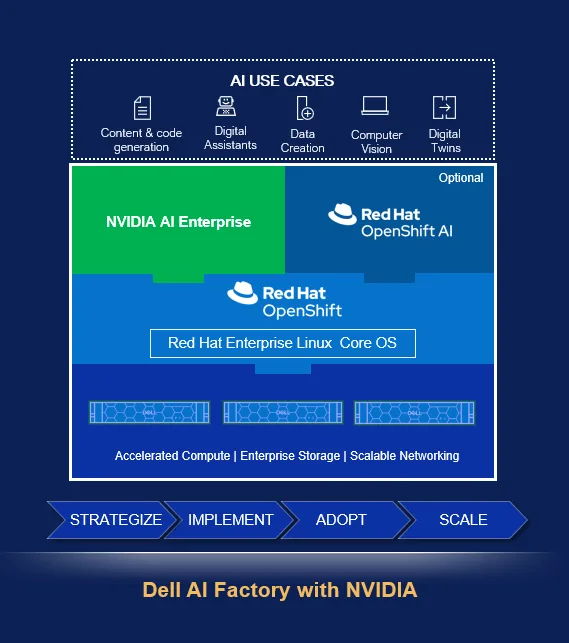
Dell Technologies recently announced that its integrated Red Hat OpenShift with its Dell AI Factory with NVIDIA platform is now generally available to customers. The solution was previewed earlier this year at Dell Tech world. The updated solution combines Dell PowerEdge infrastructure, NVIDIA GPU acceleration, Red Hat container orchestration, and NVIDIA AI Enterprise software into a validated stack.
Research Note: IBM Brings Hyper Protect to Red Hat

IBM recently expanded its Hyper Protect confidential computing portfolio to the Red Hat ecosystem through two new offerings: Hyper Protect Container Runtime (HPCR) for Red Hat Virtualization Solutions and Hyper Protect Confidential Containers (HPCC) for Red Hat OpenShift Container Platform.
Research Note: Red Hat Releases OpenShift 4.18
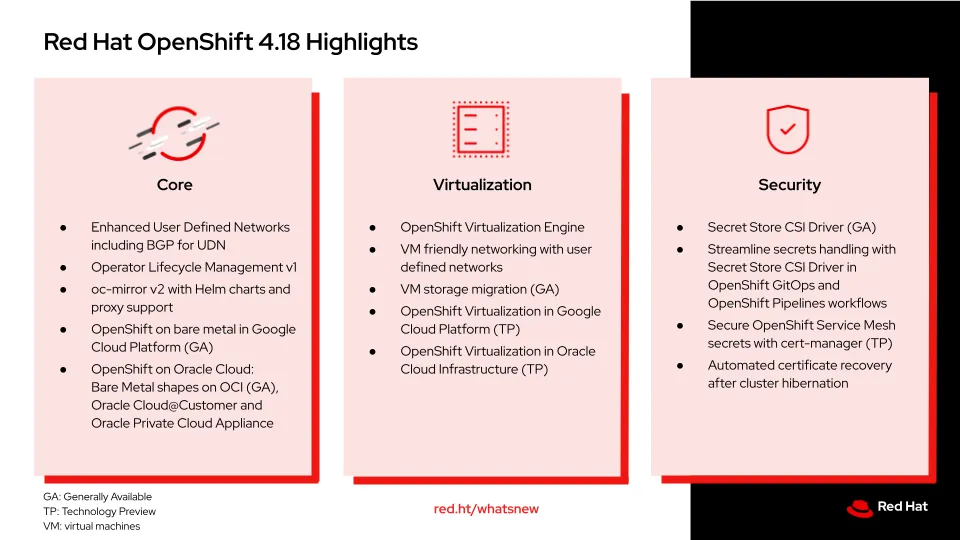
Red Hat recently released OpenShift 4.18, bringing enhancements to the solution for networking, virtualization, security, and deployment flexibility.
Research Report: Understanding VMware Alternatives

Broadcom’s acquisition of VMware has left a lasting impact on the enterprise IT landscape. Promising simplification, Broadcom’s licensing and bundling changes have instead created confusion, increased costs, and led to widespread dissatisfaction among VMware customers. Many of these customers are actively exploring alternatives, driven by frustration and the need to future-proof their IT environments. This Research Report takes a look at how to best approach looking for a VMware alternative.
NAND Insider Newsletter: January 21, 2025

Every week NAND Research puts out a newsletter for our industry customers. Below is an excerpt from this week’s.
Research Note: Red Hat OpenShift Virtualization Engine
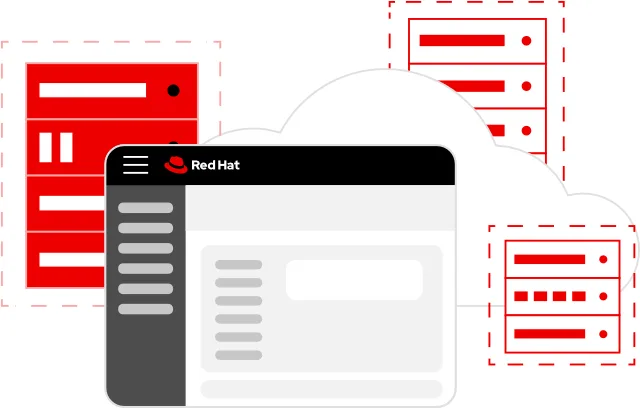
Red Hat announced the general availability of Red Hat OpenShift Virtualization Engine, a tailored version of its OpenShift orchestration platform for virtualization workloads.
The new offering utilizes the open-source KVM hypervisor and can run on-premises hardware with Red Hat Enterprise Linux and bare-metal cloud services.
IT Infrastructure Round-Up: Emerging Trends in Infrastructure and Connectivity (Nov 2024)

November was a busy month of announcements in infrastructure and connectivity, revealing a convergence of innovation to meet the stringent demands of AI-driven workloads, scalability, and cost efficiency.
Research Note: Red Hat Acquires Neural Magic

Red Hat announced a definitive agreement to acquire Neural Magic, an AI company specializing in software solutions to optimize generative AI inference workloads. The acquisition supports Red Hat’s strategy of advancing open-source AI technologies deployed across various environments within hybrid cloud infrastructures.
Research Note: Dell and Red Hat Collaboration on APEX/OpenShift

Dell Technologies and Red Hat announced a deepening of their partnership. The companies will focus on the convergence of virtualization, containerization, and AI to simplify enterprise IT operations.
The collaboration integrates Red Hat’s OpenShift container orchestration platform into Dell’s APEX Cloud Platform, enabling virtual machines (VMs) and containerized applications to coexist within the same architecture.
Research Note: Red Hat Summit 2024 AI Announcements
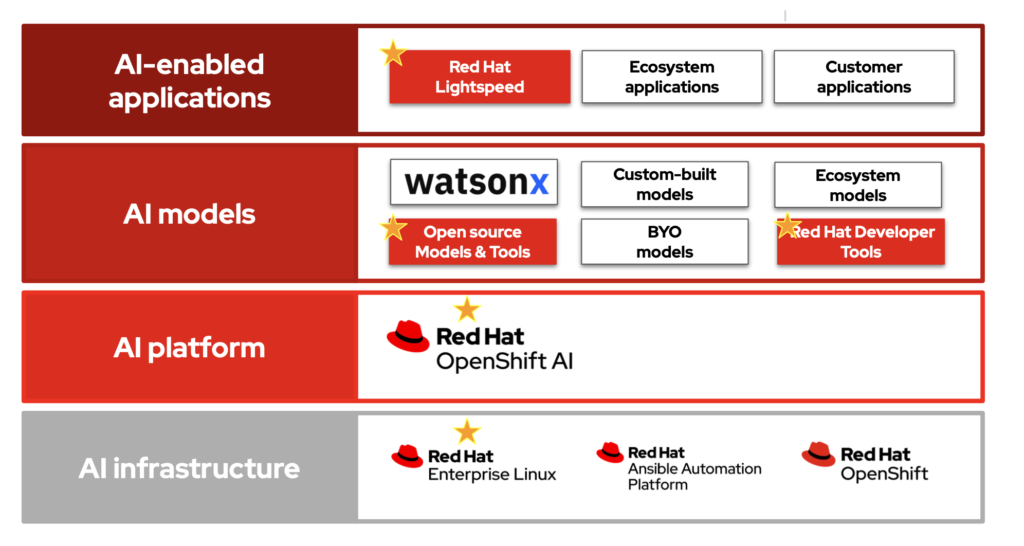
At its recent Red Hat Summit, Red Hat announced several new products and enhancements, many of which simplify or enable the use of AI within the enterprise. These include its new OpenShift AI, OpenShift LightSpeed enhancements, and a new RHEL AI release.
Research Note: IBM InstructLab LLM Tool Kit
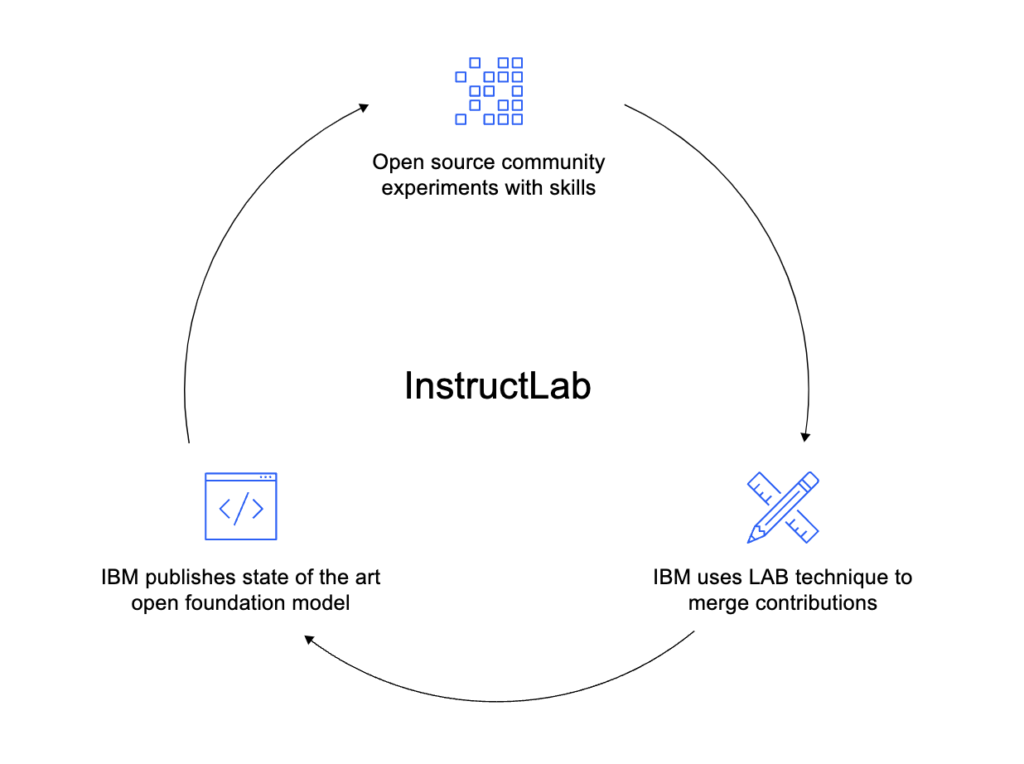
At IBM’s 2024 Think conference in Boston, IBM Research unveiled InstructLab, developed in collaboration with Red Hat, to address the inefficiencies of existing training approaches by enabling collaborative, cost-effective model customization.
Quick Take: 2024 Red Hat Summit Wrap-Up
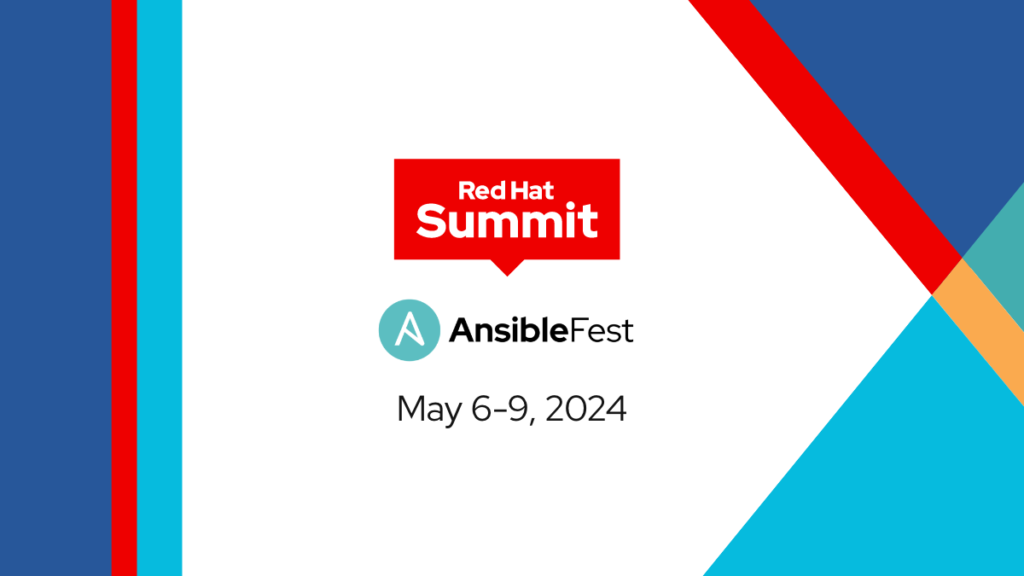
Red Hat held its annual Red Hat in Denver, Colorado, showcasing significant innovations in AI and policy automation, reinforcing Red Hat’s commitment to advancing AI applications within the enterprise sector. Key highlights included the introduction of “Policy as Code” in the Red Hat Ansible Automation Platform, expansions in the Red Hat Lightspeed portfolio to incorporate […]
Research Note: NEC & Partners Demonstrate Breakthrough in Open vRAN Technology

NEC Corporation, along with Arm, Qualcomm Technologies, Inc., Red Hat, and Hewlett Packard Enterprise (HPE) recently showcased a successful demonstration of Open Virtual Radio Access Network (vRAN) and 5G Core Virtual User Plane Function (vUPF) technology in Tokyo.
